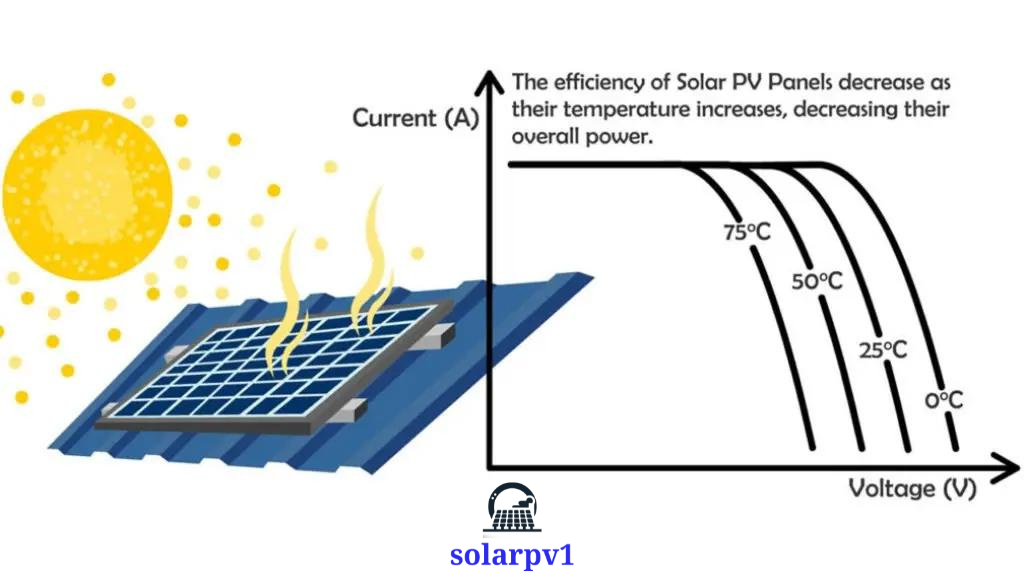Temperature Affects Solar Panel
Solar panels are becoming increasingly popular as a renewable energy source. They harness the power of the sun to generate electricity, which can be used to power homes, businesses, and even entire cities. However, the performance of solar panels can be influenced by various factors, one of which is temperature. In this blog post, we will explore how temperature affects the output of solar panels and what implications it has for their efficiency and effectiveness.

Temperature Coefficient
Every solar panel has a temperature coefficient, which indicates how its performance is affected by changes in temperature. The temperature coefficient is expressed as a percentage change in output power per degree Celsius of temperature change. There are two main temperature coefficients to consider: temperature coefficient of voltage (TCV) and temperature coefficient of current (TCC).
Effect of High Temperatures
- When solar panels are exposed to high temperatures, their performance can be negatively impacted. The temperature coefficient of voltage (TCV) determines how much the voltage output of a solar panel decreases as the temperature rises. Typically, for every degree Celsius increase in temperature, the voltage output of a solar panel decreases by a certain percentage.
- The decrease in voltage output can lead to a reduction in the overall power output of the solar panel. This means that the panel will generate less electricity than it would at lower temperatures. High temperatures can also cause a decrease in the panel’s efficiency, as the heat can increase the resistance within the solar cells, resulting in a loss of energy.
Effect of Low Temperatures
- While high temperatures can have a negative impact on solar panel output, low temperatures can actually have a positive effect. The temperature coefficient of current (TCC) determines how much the current output of a solar panel increases as the temperature decreases. This means that as the temperature drops, the current output of the solar panel increases.
- In colder climates, solar panels can actually produce more electricity than they would in warmer climates. However, it’s important to note that extremely low temperatures can also have a detrimental effect on solar panel performance. If the temperature drops too low, the solar cells can become frozen, reducing their efficiency and potentially damaging the panel.
Optimal Operating Temperature
- Solar panels are designed to operate within a specific temperature range, known as the optimal operating temperature. This range is typically between 25 to 35 degrees Celsius (77 to 95 degrees Fahrenheit). When the temperature falls within this range, the solar panel can operate at its maximum efficiency and generate the highest amount of electricity.
- To maintain the optimal operating temperature, solar panels are often installed with a gap between the panel and the mounting surface. This allows air to circulate around the panel, helping to dissipate excess heat and prevent overheating. In some cases, additional cooling systems may be installed to further regulate the temperature and improve the overall performance of the solar panels.
Final Thoughts
- Temperature plays a significant role in the output and efficiency of solar panels. High temperatures can decrease the voltage output and overall power generation, while low temperatures can increase the current output. It is important to consider the temperature coefficient of a solar panel when assessing its performance in different climates.
- To ensure optimal performance, solar panels should be installed and maintained within their recommended temperature range. This can be achieved by allowing for proper airflow and implementing cooling systems when necessary. By understanding the effects of temperature on solar panel output, we can maximize their efficiency and harness the power of the sun more effectively for our energy needs.
